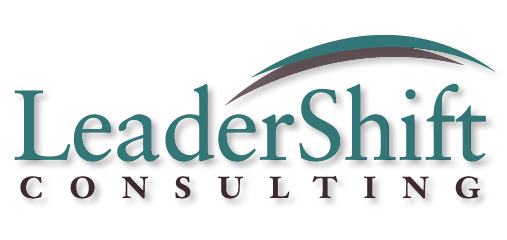“I Like Him, But You Scare Me”
When it comes to achieving equity – gender or otherwise – in the workplace, we all have a role to play.
Two of my coaching clients, Anne and Richard, work in the same company. They recently scheduled a meeting with Jeff, one of their corporate lawyers, to hammer out a contract. As Richard and Anne entered Jeff’s office for the meeting, Jeff looked up and said jovially: “Richard, I like you. But Anne, you scare me.”
Taken aback, Anne asked Jeff why. His response? “Because you have a reputation for knowing what you want and not settling for less.” She laughed it off, but it irked her.
A bit of background here: Richard is a smart, driven and opinionated guy. Not one to fret about hurting people’s feelings in pursuit of his goals, he’s “grit” all the way. While Anne is also confident and driven, she is fundamentally a grace-based person. She cares about relationships and works hard at them. She’s miserable if she offends someone, and will do whatever she can to make things right. When it comes to relationships, Richard is a lot more “scorched earth” than Anne will ever be.
But it was Anne that made Jeff nervous, which left her wondering: Why is a woman with clarity and confidence considered fearsome, while a man with those same qualities is considered awesome?
Sadly, this is not a new question. What’s amazing to me is that we’re still having to ask it; I hear these stories all the time from my female clients. Most of the time, the scenarios play out unconsciously, which is what makes them so hard to address. Often without knowing it, we (men and women alike) hold different expectations for men’s and women’s behavior. As a result, we unconsciously fling out bias-ridden feedback. We also respond to these drive-by bias moments in a variety of unhelpful and unconscious ways: retreating, ignoring, blaming, or demurely sucking it up.
With greater self-awareness and small acts of change, everyone’s got an opportunity to step up to workplace equality. Taking Anne’s interaction with Richard and Jeff as a case study… here are some of the opportunities before us:
- For the person levying the criticism (Jeff)
Jeff’s not a bad guy; he was just acting unconsciously. But unconsciousness itself is the problem, because it’s the engine of implicit bias and it has a powerful impact. So there’s an opening for Jeff to do some soul-searching here. Did he even notice the surprise on Anne’s face, which signaled that he had misstepped? What biases did his greeting reveal? How might those biases be affecting the success of this specific interaction, his behavior more widely, or his effectiveness with other women clients? And if he did have some legitimate feedback for Anne, how could he have delivered that in a way that she could actually hear and learn from? In other words, Jeff’s got a responsibility to examine whether his biases are getting in the way of his own or others’ effectiveness, as well as a responsibility to deliver feedback in a responsible, actionable manner. - For the bystander (Richard)
Richard did what a lot of folks do when someone ridicules a woman: nothing. In staying quiet, he missed the chance to restore the tone of respect toward Anne. He could have said something like, “Anne knows her own mind, and I respect that about her. And I’ve never worked with a more collaborative, competent colleague.” By staying silent, Richard tacitly gave Jeff the green light for his offhanded comment. By speaking up, he could have sent a clear message and changed the dynamic significantly. - For the woman (Anne)
Anne’s instinct was to dismiss the feedback by labeling Jeff a jerk. But it’s possible for Jeff to be speaking from bias (implicit or explicit) AND for Anne to do some self-reflection. Might she legitimately be doing something to get in the way of the collaborative relationships she really wants? From the other angle, was she too demure? Should she have confronted his behavior more directly? I’m not saying that Anne should accept responsibility for someone else’s bias; I’m saying that she should ask herself whether there’s a growth opportunity embedded in the feedback.
If we want a workplace in which everyone is treated even-handedly, we all have a role to play.
What about you?
- How often are you willing to courageously question potential bias: in yourself, in others and in the organization’s norms, systems and practices?
- What stops you from doing that more?
- What’s one small “practice” you could undertake today to watch for and confront bias to a greater degree?

